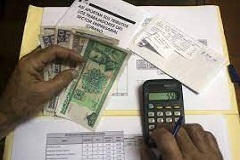Diseño de un procedimiento de control extensivo a pagos que reciben trabajadores por cuenta propia
Palabras clave:
control extensivo, fiscalización de tributos, impuestos sobre los serviciosResumen
Este trabajo tiene como objetivo diseñar el procedimiento para la realización de controles extensivos a los pagos que reciben los trabajadores por cuenta propia por parte de las personas jurídicas. El desarrollo del informe se hace un análisis de las acciones de control extensivo como parte del control fiscal integral que se realizan a los trabajadores por cuenta propia y se fundamenta el procedimiento propuesto para la realización de controles extensivos a los pagos que reciben los trabajadores por cuenta propia por parte de las personas jurídicas y se analiza la viabilidad de aplicación mediante un estudio de caso. El procedimiento consta de cuatro fases: preparación de las condiciones para implantar el procedimiento, selección de las personas jurídicas a requerir información, procesamiento del requerimiento que se emite a las personas jurídicas seleccionadas sobre los pagos que reciben los trabajadores por cuenta propia y procesamiento de la información registral. La aplicación del procedimiento propuesto en la Oficina de Administración Tributaria del municipio Holguín mediante un estudio de caso, permitió validar la viabilidad del mismo para realizar el control extensivo a los pagos que reciben los trabajadores por cuenta propia por parte de las personas jurídicas.
Citas
Alink, M., & Van Kommer, V. (2011). Manual de Administración Tributaria.
Asamblea Nacional del Poder Popular. (2012). Ley 113 del Sistema Tributario en Cuba. Habana.
Asamblea Nacional del Poder Popular. (2020). Constitución de la República. Habana.
Centro Interamericano de Administraciones Tributarias. (2015). Modelo de código tributario. Ciudad de Panamá.
Contraloría General de la República. (2010). RESOLUCIÓN No. 997. Cuba.
CORRAL, M. J. (2004). Documentación elaborada para la maestría internacional en administración tributaria y hacienda pública: IEF-AEAT-UNED-CEDDET-CIAT
Delgado, D. W. (2000). Fundamentos de la dirección y el perfeccionamiento empresarial cubano. CETDIR, ISPJAE.
Díaz yubero, f. (2003). Aspectos más destacados de las administraciones tributarias avanzadas. Madrid.
Francisco Suero, L., Umansky, I., del Toro Ríos, J. C., Hernández Herrera, R., Benítez Fernández, A., Chaviano Saldaña, N., .Reyes Hernández, C. M. (2003). Administración Financiera del estado Cubano. Centro de Estudios Contables, Financieros y de Seguros.
Gs fiscales. (2013). Encuentro de derecho financiero y tributario (2.a ed.) "Las medidas de lucha contra el fraude fiscal" fraude fiscal: dimensión nacional. Madrid.
Luz., P. N. (mayo de 2011). Sistema tributario cubano: descripción, antecedentes y actualidad. Villa Clara, Villa Clara, Cuba.
Martínez Gómez, D. (2011). Evaluación de la Gestión Tributaria en la ONAT del municipio Colombia. Las Tunas.
Ministros, C. d. (2012). Decreto 308 Reglamento de las Normas Generales y de los Procedimientos Tributarios. Habana.
Msc. Evelyn Beatriz Lanza González, M. J. (2017). Métodos de fiscalización para el control extensivo. Revista Científica de la Universidad de Cienfuegos, 219-224
PCC. (2016). Lineamientos de la Política Económica y Social del Partido y la Revolución. Habana, Cuba.
Veramendi, M. A. (2002). El control integral extensivo e intensivo del cumplimiento de las. Perú
Weston, J. F. (1992). Fundamentos de Administración Financiera.

Descargas
Publicado
Cómo citar
Número
Sección
Licencia

Esta obra está bajo una licencia internacional Creative Commons Atribución-NoComercial-SinDerivadas 4.0.
El envío de una contribución a la Revista Cubana de Finanzas y Precios (RCFP) implica una cesión no exclusiva de derechos, que incluye:
- Reproducir el Artículo total o parcialmente y comunicar el Artículo al público en formato impreso o electrónico, combinado o no con obras de terceros, como por ejemplo poniendo el Artículo a disposición del público a través de Internet o de cualquier otra red, como parte de una base de datos, con acceso on-line u off-line, para su utilización por terceros;
- Traducir el Artículo a otros idiomas y difundir al público la traducción;
- Crear adaptaciones, resúmenes o extractos del Artículo y otras obras derivadas del mismo, así como ejercer todos sus derechos sobre dichas adaptaciones, resúmenes, extractos y obras derivadas;
- Incluir el Artículo, ya sea en su versión traducida, adaptada o resumida, total o parcialmente, en una base de datos informatizada y poner ésta a disposición de terceros;
- Incluir el Artículo, total o parcialmente, ya sea en su versión traducida, adaptada o resumida, en una selección o recopilación de textos;
- Alquilar o prestar el Artículo a terceros;
- Reproducir el Artículo por medio de reprografía, sin perjuicio de las limitaciones legales.
El Autor de los artículos publicados en la Revista Cubana de Finanzas y Precios (RCFP) podrá ejercer los siguientes derechos:
- Reproducir el Artículo, total o parcialmente, y difundir su contenido o ponerlo a disposición del público, en formato impreso o electrónico, como parte de un contenido docente o como una recopilación, para su uso en el ámbito académico o de investigación en la institución a la que pertenezca el Autor o en aquellas instituciones a las que este pertenezca.
- Publicar el Artículo en Internet o autorizar a la institución del Autor (o a cualquier otra organización apropiada) a hacer lo propio, de forma inmediata a partir de la fecha de publicación del Artículo en la revista: dentro de la red cerrada de la institución (p. ej., la intranet); o en repositorios institucionales de acceso público o repositorios organizados de forma centralizada, siempre que se incluya un enlace al Artículo en el sitio web de la revista.
- Ceder a la propia institución del Autor (o a cualquier otra organización apropiada) la autorización para reproducir el Artículo con objeto de evitar su deterioro o, si el original estuviera en un formato obsoleto o la tecnología para utilizarlo no estuviese disponible, a fin de asegurar que el Artículo sigue estando disponible para propósitos docentes o de investigación;
- Presentar el Artículo en una reunión o conferencia, y distribuir copias del mismo a los asistentes al evento.
- Ceder a usuarios finales de la propia institución del Autor (o de cualquier otra organización apropiada) la autorización para copiar, utilizar, transmitir y presentar en público el trabajo y para crear y distribuir obras derivadas.



